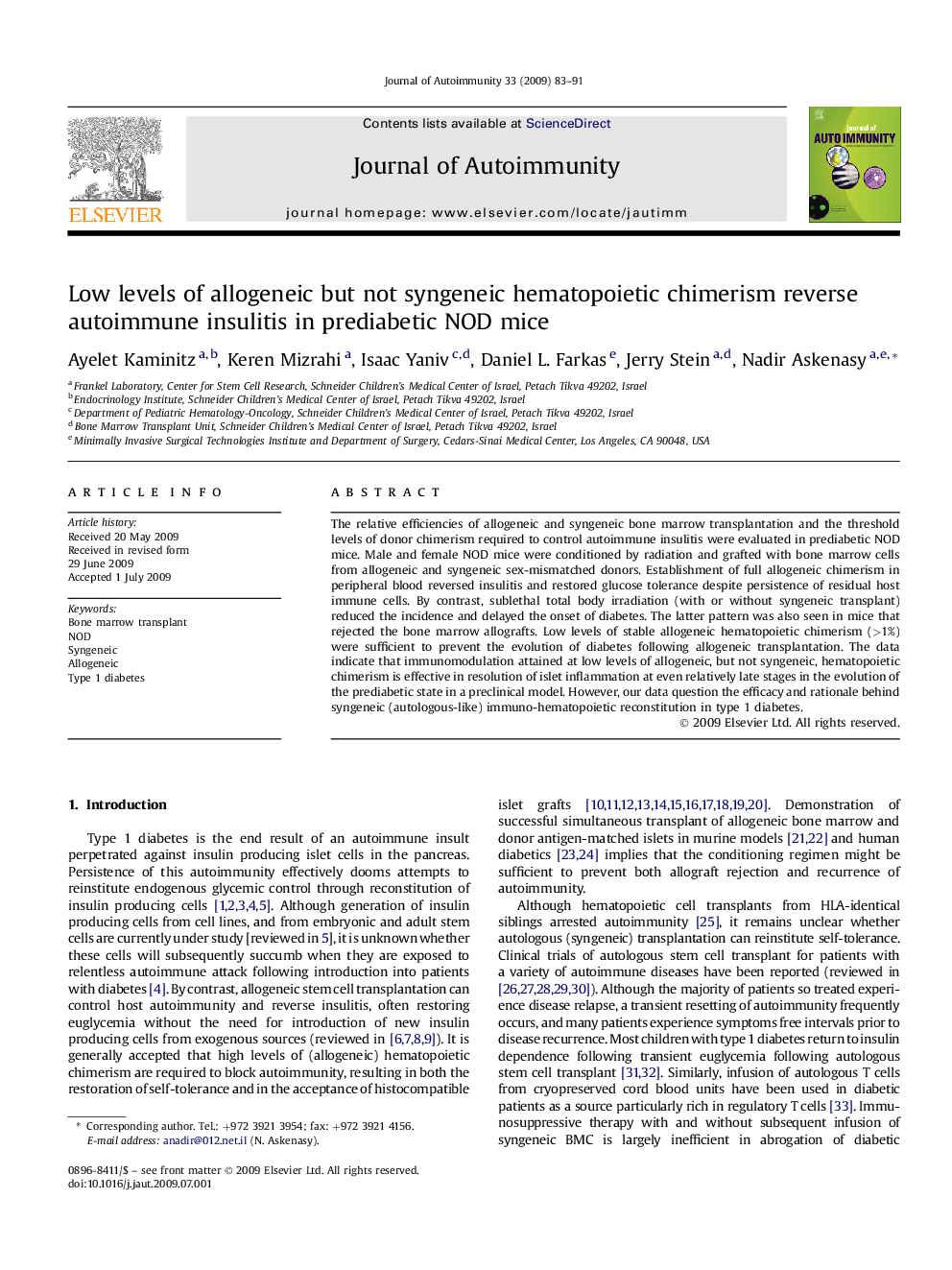| کد مقاله | کد نشریه | سال انتشار | مقاله انگلیسی | نسخه تمام متن |
|---|---|---|---|---|
| 3368235 | 1218778 | 2009 | 9 صفحه PDF | دانلود رایگان |

The relative efficiencies of allogeneic and syngeneic bone marrow transplantation and the threshold levels of donor chimerism required to control autoimmune insulitis were evaluated in prediabetic NOD mice. Male and female NOD mice were conditioned by radiation and grafted with bone marrow cells from allogeneic and syngeneic sex-mismatched donors. Establishment of full allogeneic chimerism in peripheral blood reversed insulitis and restored glucose tolerance despite persistence of residual host immune cells. By contrast, sublethal total body irradiation (with or without syngeneic transplant) reduced the incidence and delayed the onset of diabetes. The latter pattern was also seen in mice that rejected the bone marrow allografts. Low levels of stable allogeneic hematopoietic chimerism (>1%) were sufficient to prevent the evolution of diabetes following allogeneic transplantation. The data indicate that immunomodulation attained at low levels of allogeneic, but not syngeneic, hematopoietic chimerism is effective in resolution of islet inflammation at even relatively late stages in the evolution of the prediabetic state in a preclinical model. However, our data question the efficacy and rationale behind syngeneic (autologous-like) immuno-hematopoietic reconstitution in type 1 diabetes.
Journal: Journal of Autoimmunity - Volume 33, Issue 2, September 2009, Pages 83–91